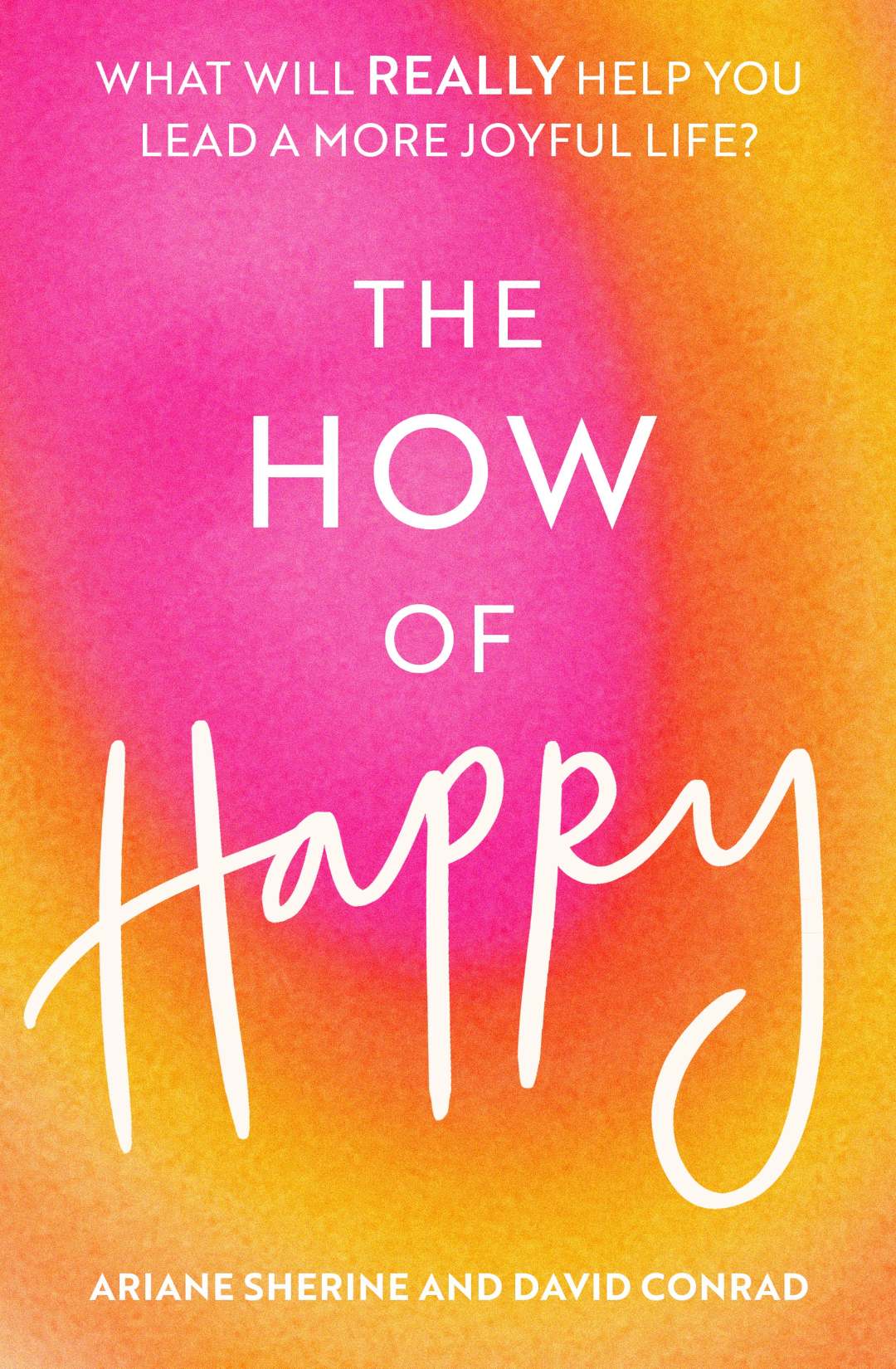A Happiness Researcher Explains the Science-Backed Secrets to Living a Fulfilling Life

Everyone enjoys being happy, but keeping a positive state of mind isn’t always easy. Do you need to switch careers, take a sabbatical, or buy a new car? Maybe you think you can’t truly be happy until you’ve found the right partner? It’s important to be proactive about our mental health, but often the ideas we have about what we think will make us happy don’t actually lead us to long-term fulfilment.
Happiness research is a growing field of psychology that looks at the universal factors human beings need to improve their sense of well-being. In the past few decades, the scientific study of the topic has exploded and there are now countless research papers into the tools we need to construct a happier life.
In a new book titled The How of Happy, public health expert David Conrad and comedian Ariane Sherine deconstruct the confusing world of happiness literature, setting out a clear path to feeling good. Rather than hoping for the right set of circumstances to magically show up, the authors believe that we can all take conscious steps to cultivate a more fulfilling life. Here, we spoke to Conrad about the proven things we can do today to harness more of life’s happy moments.
Happiness is a range of factors
It’s easy to promise yourself that you’ll be happy ‘if only’ you could grasp that ‘one thing’ that’s slightly out of reach, but according to Conrad, the conditions for happiness are slightly more complex.
“We get into the trap of thinking that there’s one key to happiness, such as changing our job or leaving a relationship,” he explains. “From diving into 50 different research studies on happiness, what occurred to me is the vast range of factors that can have an influence on our level of happiness. Often, there can be tiny things that affect our happiness that we’re not even aware of.”
While big achievements like promotions and engagements can contribute to our sense of self-actualisation, Conrad says that a defining happiness solution is a myth. In reality, it’s a mix of lots of different things. In fact, focusing on one single driver to deliver lasting happiness will only lead to inevitable disappointment.

Kindness is key
Acts of kindness don’t just make the world a happier place – studies have found that they can have a major effect on our sense of optimism. They can increase self-esteem, empathy and compassion, and improve our mood.
“It can be easy to think of the pursuit of happiness as a very individualistic and selfish endeavor,” Conrad explains. “We almost feel guilty about pursuing our own happiness as it leaves us feeling as though we’re not thinking about others.”
Want to do one single thing to improve how you feel? Conrad says that a random act of kindness is – scientifically – your best bet. “There’s some good studies that have shown that acts of kindness towards other people can have an influence on your own happiness too.”
Handily, they don’t have to be major voluntary projects or acts of self-sacrifice either. Simply helping someone with their bags, making a round of tea for colleagues or leaving a positive review for a small business can do the trick.
Friendships matter
In the age of social media, we can have thousands of connections across multiple different platforms. It can often feel like we’re never alone, but what truly makes us happy is the quality of our friendships.
“Happiness research makes the importance of building positive and valuable relationships clear,” says Conrad. “It’s almost a bit of a cliche to talk about the contrast between superficial online connections versus real life friendships, but the evidence backs it up.”
He continues: “Essentially, it’s not about the number of friends you have, but the quality of those relationships, whether that’s with your partner, friends or relatives. It’s about having connections that are positive and mutually supportive; which have value in your life.”
As a researcher, one of the questions that people often ask him is whether married people are happier than single people. “Evidence broadly supports this idea,” Conrad explains, “but crucially, it comes down to the quality of the marriage. If you’re in an unhappy, poor-quality marriage then your happiness levels are likely to be lower.”
Luxury goods can be a trap
Whether it’s a new watch, a designer handbag or the latest smartphone, the desire for expensive products is one that many of us share. But how often have you wished for a new item, only to tire of it a few months later?
“Studies have found that luxury goods can definitely give us a little short term boost. In small doses, alongside more meaningful happiness actions, treatings ourselves can be beneficial from time to time,” says Conrad.
“The issue is that if you’re putting all of your efforts into chasing luxury goods, then it’s likely you’re neglecting the other things that are going to have a bigger influence on your happiness long-term.”

Small things can make a big difference
“One of the more slightly unusual studies we looked at is the effect of fast food imagery on our happiness,” says Conrad. “This isn’t about eating fast food; it’s about being exposed to fast food chain logos, packaging and branding.”
The 2014 study in question tested whether exposure to the symbols of an impatience culture – fast food – undermines people’s ability to experience happiness from savouring pleasurable experiences. “While it was only a small study (and you’ve always got to be cautious about what we can generalise from the results) the findings of that seem to suggest that seeing the imagery could have a detrimental effect on our ability to experience happiness.”
This means that people living in neighbourhoods with a high concentration of fast food outlets could have a slight disadvantage when it comes to cultivating happiness. “Being surrounded by fast food advertising is one of those things that you wouldn’t necessarily think about. Nevertheless, it could be affecting your mood,” affirms Conrad.
Happiness looks different for everyone
Joy is a universal feeling but the determiners can vary. This is because we all have different ideas, interests, perceptions, goals and experiences in life.
“A different combination of things will resonate with different people, depending on who they are and their stage of life,” explains Conrad. “One of the messages I’ve tried to get through in the book is that it’s about finding an individual combination of things that works for you.
“Through unpacking the research, we’ve given people tools and awareness about what might influence their happiness. From there, it’s about being reflective about what makes you feel good, and what doesn’t.”
Taking steps to be happier, Conrad says, will always work in our favour. “If you’re being proactive about being happy, you’ll be doing more of the things that are going to have a positive influence on your mood.”
He adds: “Ultimately, this is always going to trump sitting around and worrying about the fact that you’re not happier, or simply hoping to be happier in the future.”

‘The How of Happy’ by Ariane Sherine and David Conrad is out now.


















